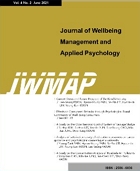- 권한신청
- E-ISSN2586-6036
- KCI
Effects of Hotel Experiences on Service Quality, Satisfaction and Consumer-Brand Relationship
Abstract
Purpose: The study tried to make a comparison between local and global brand hotels with respect to the relationships among customer experiences, service quality, customer satisfaction and consumer-brand relationship. This study provided strategic implications according to its results. Research design, data and methodology: To this end, this study collected data from 300 participants who have stayed at local and global brand hotels in Seoul. SAS 9.4 was used for data analysis. Results: The results showed that experiential modules ('sense' module and 'feel-think-act') affected service quality (human service, physical service) in local brand hotels. But 'feel-think-act', one of experiential modules, only affected service quality in global brand hotels. Also, physical service only had strong effects on customer satisfaction with both local and global brand hotels. Finally, customer satisfaction was influenced by consumer-brand relationships for two hotel groups. But there were no statistically significant differences in all estimations between local and global brand hotels. Conclusions: In conclusion, the study provided some strategic implications that experiential marketing in hotel industry needs be practiced maintain the competitive advantage and sustain branding power and will result in stronger consumer-brand relationships in local and global brand hotels.
- keywords
- Experiential Marketing, Service Quality, Customer Satisfaction, Consumer-Brand Relationship, Local Brand Hotel, Global Brand Hotel
- 다운로드 수
- 조회수
- 0KCI 피인용수
- 0WOS 피인용수














